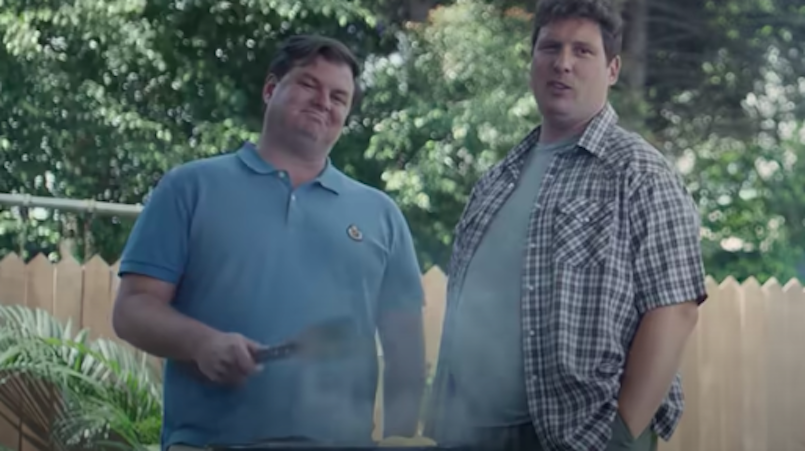MeToo, toxic masculinity are triggers to avoid: P&G's global brand boss Marc Pritchard on how Gillette 'We Believe' backlash changed its advertising approach

Marc Pritchard: "We didn't have to spend as much time showing the negatives in the film. We could have just gone right into the better part."
Gillette’s brand pivot to make blokes better caused an internet meltdown, polarised its customers and was a "profound setback". Procter & Gamble’s Chief Brand Officer, Marc Pritchard, still thinks it was the right thing to do. But he’d do it differently today – and advises brand teams to look and listen more closely before they leap into controversial ads.
What you need to know:
- P&G CMO Mark Pritchard cites the 2019 Gillette, We Believe backlash as one of the most “profound setbacks” he has had to deal with as a marketer.
- The campaign reached 110 million people. But it made a lot of them very angry.
- Since then, the world’s second largest advertiser has not shied away from purpose-driven brands, but now takes a more consultative approach with ads likely to cause controversy.
- Brand teams are advised to engage people likely to be offended before campaigns go live.
Razor burn
The “profound” fallout from Gillette’s We Believe ad changed the way P&G does purpose-driven advertising, according to CMO Marc Pritchard. It now focuses less on negatives, avoids trigger words and engages those that will likely be offended by its purpose-driven ads before they go live.
The 2019 We Believe ad reached 110 million people. But it made a lot of them very angry. While Gillette stands by its message, with hindsight, the execution was off, Pritchard told The Institute for Real Growth.
“We took a lot of heat from We Believe. But it was the right thing for Gillette to do,” he said. The brand’s long running ‘Best a man can get campaign’ was “very stereotypical … and in some cases the work even objectified or even diminished women. Not intentionally, but it did over time.”
As the MeToo movement gathered pace, the brand, encouraged by Pritchard, knew it had to modernise and “wake up,” he added. We Believe was the result.
“We wanted to demonstrate that [men] can be role models and it’s not enough to just not be a harasser.” But Pritchard said the front half of the ad caused the problems.
“It said the MeToo movement and it said toxic masculinity – and it actually showed some very bad behaviour by men,” said Pritchard.
“It turned into a storm of great proportion … And we spent a lot of time dealing with that.”
What many men, particularly Caucasian men, were saying was: 'We don't want to be viewed in this way, we're not all like that.' You know what? They’re right. They’re not. So let’s not depict it in that way.
Too negative
Most objections were to the words used in the ad and that Gillette was “depicting men in a negative way”, said Pritchard. “That wasn’t the intention, but it’s the way it came across and that is what they jumped on.”
The backlash caused the brand team to step back and question its approach: “Are our intentions right? Yes. Are we really trying to do the right thing? Yes. Okay, we're trying, let’s keep going,” he added.
“So we started we started getting our narrative out there and started then demonstrating the good we were actually doing, [such as] donating money to men and boys’ organisations to help them.”
It also modified later versions of the ad.
Some positives
While Pritchard said the campaign changed people’s perception of the brand and boosted Gillette’s business among younger buyers, P&G learned some lessons.
“Number one, we didn't have to spend as much time showing the negatives in the film. We could have just gone right into the better part.
“Two, we've got to recognise that there are trigger words. Toxic masculinity and the MeToo movement focused on men are trigger words. We have got to be sensitive to that.
“Three, always listen to someone who has a different point of view and learn something from that. At first we were just rejecting all those people who reject us. So I am far more respectful now of all views, and I really think about that with everything we do now,” said Pritchard.
“Because what many men, particularly Caucasian men, were saying was: ‘We don't want to be viewed in this way, we're not all like that. You know what? They’re right. They’re not. So let’s not depict it in that way.”
P&G’s brand teams are now urged to consider the perspective of those its purpose driven ads may offend.
“We do this on everything now,” said Pritchard. “[If] we’ve got something we think might be controversial, we go and think about – and even listen to – people who we think it might be controversial with so they can give us input.”
